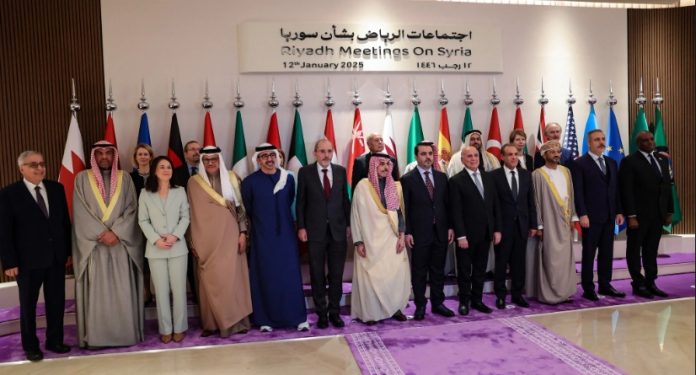The European Union is set to deliberate easing sanctions on Syria later this month, contingent on progress toward an inclusive political transition following the ouster of President Bashar al-Assad. EU foreign ministers will meet on January 27 in Brussels to assess the situation, said Kaja Kallas, the bloc’s foreign policy chief, during a diplomatic gathering in Riyadh.
The meeting, attended by European and Middle Eastern leaders, explored pathways for Syria’s recovery after nearly 14 years of devastating conflict that claimed an estimated 500,000 lives and displaced millions. Saudi Arabia and Türkiye emphasised the need to lift sanctions to enable reconstruction and development, urging a balanced approach to support Syria’s new interim government.
The interim authorities, composed of former rebel factions, have pledged a national dialogue to draft a new constitution and hold elections. Saudi Foreign Minister Prince Faisal bin Farhan lauded these efforts, calling for sanctions removal to foster development.
German Foreign Minister Annalena Baerbock, while advocating for the continuation of targeted sanctions against Assad’s allies, stressed the importance of providing immediate relief to the Syrian population. Germany announced €50 million in aid for emergency needs.
Meanwhile, the U.S. has eased certain restrictions, allowing limited transactions with Syria and dropping a bounty on rebel leader Ahmad al-Sharaa, who has promised an inclusive governance framework.
Syria’s new leadership hopes these developments will pave the way for international support to rebuild its war-torn infrastructure and revive its economy.




